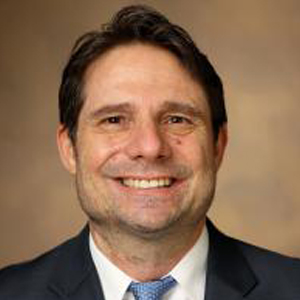Matthew Freiberg, M.D., a physician and cardiovascular epidemiologist at Vanderbilt University Medical Center, has spent much of his career determining how conditions such as unhealthy alcohol use and HIV infection increase a person’s risk of cardiovascular disease.
Now, with $7 million in new funding from the National Institute on Alcohol Abuse and Alcoholism, Freiberg is tying it all together.
The founding director of the Vanderbilt Center for Clinical Cardiovascular Outcomes Research and Trials Evaluation (V-CREATE) has designed a two-part study to determine whether probiotics can help reduce cardiovascular risk among people with HIV who are heavy drinkers. People with HIV are already at higher risk of cardiovascular disease, Freiberg said, and alcohol may have an additive effect due to resultant gut dysbiosis.
“In this randomized controlled trial, we are studying whether manipulating the gut microbiome with probiotics, as compared to placebo, can reduce alcohol-related gut damage,” Freiberg said.
Overcoming Effects of Alcohol Abuse
Alcohol causes a number of changes to the gut, including a “leaky gut” condition where bacteria and associated metabolites seep into the bloodstream. Research has shown that changes to the gut microbiome can modulate this effect – and may even affect a person’s risk of developing heart disease.
Substance abuse is a persistent challenge for the more than one million people living with HIV in the United States. Estimates of alcohol use disorders within this population hover around 30 percent. Beyond effects on the gut, excessive alcohol can interfere with inflammatory responses and alter drug metabolism, both of which play a role in heart disease, Freiberg said.
In the new study, researchers will first administer a daily dose of tailored probiotics or placebo to 250 study participants for six months. The probiotics contain bacteria that make butyrate, which has been shown to enhance intestinal barrier function. The researchers will determine if the probiotic can mitigate alcohol-associated dysbiosis and restore healthy metabolite levels in the gut.
Investigating Connections to Heart Disease
The second part of the study will involve 2,900 participants from the Veterans Aging Cohort Study, an observational subject group living with or without HIV. The researchers will analyze levels of gut bacterial metabolites in study participants – such as trimethylamine N-oxide – and look for associations to a higher incidence of cardiovascular disease or related death.
“We are attempting to quantify the extent of cardiovascular damage associated with very high levels of gut dysbiosis metabolites,” Freiberg explained.
By involving thousands of participants, Freiberg’s team will be able to build on initial findings under the grant award.
“That study will have greater statistical potential to associate leaky gut with clinical outcomes, such as having a heart attack, heart failure or peripheral arterial disease 10 years later,” Freiberg said.
Simple Solution?
Together, the two parts of the study will determine if probiotics might help overcome harmful effects of alcohol on gut bacteria and the metabolites they make – and whether these metabolites might truly underlie adverse cardiovascular events in people living with HIV.
Probiotics could be a simple solution for a population that often faces social and public health challenges, Freiberg said.
“The advantages of this intervention are several-fold,” he said. “It’s not that expensive. In some cases, it could be a dollar a day. Also, these pills can be tailored to the individual patient’s needs.”
By restoring healthy gut bacteria, the approach is also likely to be safer than other drugs or interventions to combat leaky gut.
“We’re not giving you something new; we’re giving you something you already have, but you’re losing it,” Freiberg said.





